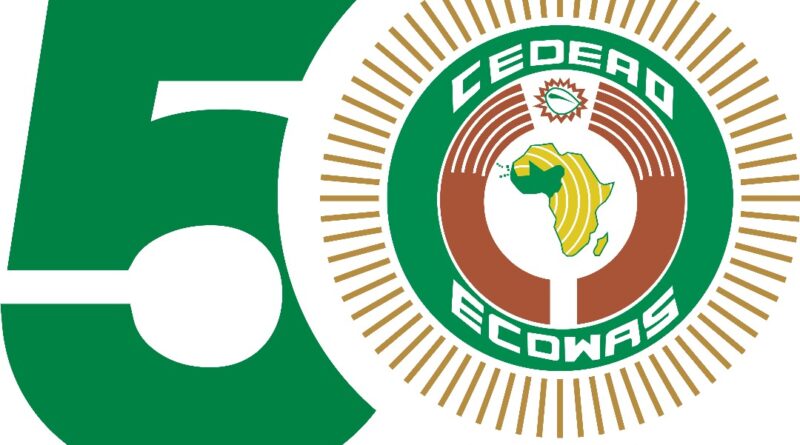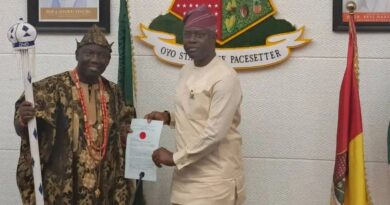ECOWAS at 50 A Call to Renew Regional Unity
The fiftieth anniversary of the Economic Community of West African States ECOWAS is more than a symbolic milestone. It is a moment for deep reflection a moment to evaluate the vision that inspired its founding and the challenges that now threaten the unity and progress of the region. As leaders gather for the golden jubilee, the real task is not celebration but the rebuilding of a regional dream that is gradually losing its shine.
The Birth of a Regional Vision
Founded on May 28, 1975, ECOWAS emerged as a bold experiment in regional cooperation. Fifteen nations came together with a shared determination to overcome the economic divisions and political vulnerabilities inherited from colonial rule. Their aim was simple yet profound to build a stronger and more prosperous West Africa through unity free trade and shared governance.
From the beginning Nigeria played a central role in this mission. Former Head of State General Yakubu Gowon was among those who envisioned a united West Africa that could stand on its own in an increasingly complex global landscape.
Key Achievements of ECOWAS
Over the last five decades ECOWAS has made strides that deserve recognition. Citizens of member states can travel for up to ninety days without visas. The region introduced a biometric identity system to reduce fraud and ease mobility. The ECOWAS Trade Liberalization Scheme launched in 1979 remains an important tool for encouraging trade among member countries.
Important institutions also emerged such as the ECOWAS Court of Justice the ECOWAS Parliament and the West African Health Organization. The ECOWAS Bank for Investment and Development continue to fund key projects in transportation energy agriculture and public infrastructure.
Perhaps the most outstanding legacy is ECOMOG the peacekeeping force that restored stability in Liberia Sierra Leone and later The Gambia. These interventions earned ECOWAS global respect for its willingness to protect democracy and human rights when national governments failed.
ALSO READ: Federal High Court Announces Christmas Vacation
A Region at a Crossroads
Despite these achievements ECOWAS now faces one of the most difficult periods in its history. A wave of military coups has shaken the region and threatened the foundations of collective leadership. Mali Burkina Faso Guinea and Niger have experienced changes in government through force. Some of these nations have withdrawn from ECOWAS accusing the bloc of unfair sanctions and political bias.
Their exit has opened the door to new foreign influence and a shift in military alliances especially with powers such as Russia. This threatens the unity that ECOWAS spent fifty years building.
At the same time terrorism continues to spread across the region. The 2024 Global Terrorism Index shows that the Sahel has become the global center of violent extremism. Mali faces constant attacks that disrupt communities and social life. The withdrawal of the Sahel states from ECOWAS has weakened cooperation making borders more vulnerable and reducing the effectiveness of counterterrorism operations.
Economic Integration Still a Struggle
While ECOWAS has made progress in mobility and cooperation economic integration remains slow. Intra-regional trade is still below fifteen percent. The promise of a single currency called the Eco has suffered repeated setbacks due to lack of political alignment and uneven economic performance.
Even though free movement is guaranteed on paper citizens still face harassment at borders and frequent closure of checkpoints. Many people have grown disillusioned seeing ECOWAS as distant from their daily struggles.
Rebuilding Trust and Renewing Commitment
For ECOWAS to remain relevant it must rebuild public trust and redefine its mission. The youth population of West Africa is expanding rapidly. If provided with opportunities young people can drive innovation agriculture technology and regional growth. If neglected they risk becoming conduits for instability crime and extremism.
Regional leaders must also priorities transparency fair governance and respect for constitutional rule. Without these the dream of integration will remain incomplete.
A New Chapter for West Africa
As ECOWAS celebrates fifty years it must look back to the spirit of unity that guided its founders in 1975. West Africa needs a more people centered ECOWAS one that protects democracy supports economic growth and ensures lasting peace. The dream is not lost but it must be rebuilt with courage honesty and renewed purpose.
Content Credit: Ohidah Oluwaferanmi
Image Credit:




